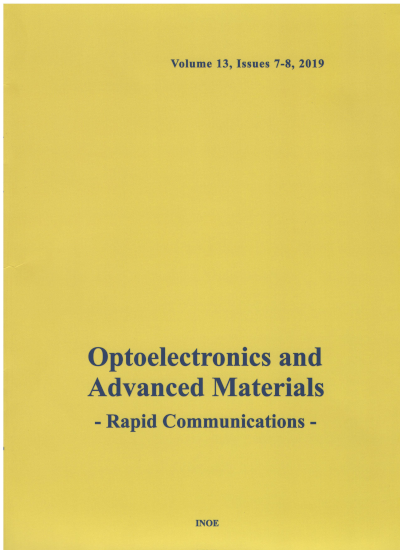Abstract
In this paper were prepared porous calcium silicate bioactive glasses by the sol-gel method using poly (ethylene) glycol (PEG) as an organic template. The structure of the glasses prepared was investigated by XRD, FTIR and SEM/EDS. The in vitro bioactivity of these glasses was carried out by immersing them in a stimulated body fluid (SBF) at 37 ºC and pH 7.4 for a reaction time period of 14 days. The results show that the use of the PEG (as pore former) enables the synthesis of porous calcium silicate glasses with excellent bioactivity..
Keywords
Bioceramics, Bioglasses, Sol-gel processing, FTIR, SBF.
Citation
D. E. BACIU, J. SIMITZIS, Influence of poly (ethylene) glycol used as organic template on the structure of calcium silicate bioactive glasses, Optoelectronics and Advanced Materials - Rapid Communications, 6, 5-6, May-June 2012, pp.648-651 (2012).
Submitted at: March 26, 2012
Accepted at: June 6, 2012
